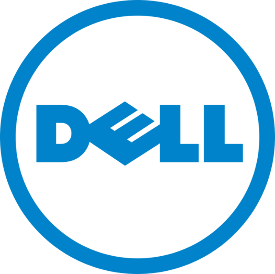Dell has been quite successful recently selling a line of computers preinstalled with GNU/Linux. So much so that the company posted a blog on March 10 extolling the fact that Precision 5510, 3510, 7510 and 7710 mobile workstations are all available worldwide with Ubuntu preinstalled. What’s more, the company doesn’t hide Linux availability in the fine print or make potential customers find a special page to order from, which had once been its practice. Just go to the page for Precision laptops, find the one you want and tic the Ubuntu Linux option in the Operating System box in the Build My Dell section.
 Here’s the big surprise, especially for those of you trying to stay on top of the Microsoft tax: Choosing Ubuntu over Windows comes with a $101.50 reduction in price. That’s quite a discount — much, much more than I remember back in 2007 when Dell made its first foray into offering Linux.
Here’s the big surprise, especially for those of you trying to stay on top of the Microsoft tax: Choosing Ubuntu over Windows comes with a $101.50 reduction in price. That’s quite a discount — much, much more than I remember back in 2007 when Dell made its first foray into offering Linux.
Dell isn’t targeting the everyday consumer with these offerings, but has its sights set on the developer set, which is fair enough given that many Linux users ply their trade in IT. Indeed, as Agam Shah pointed out Friday on CIO, the company sees its Linux line as an opening “for the open-source community to develop tools, drivers and software for laptops, tablets and other emerging form factors.”
The Precision line of laptops is upper end, with prices beginning at about $1,000, or a little less than $900 with the Linux discount. Again, that’s fair enough, since most developer types make decent money and their computers are the basic tool of their trade. Dell’s prices are certainly not out of line. Even though Linux laptops offered by System76 and ZaReason with comparable specs go for about $150 less that Dell’s lowest priced Linux model, they come with fewer support options.
But why concentrate solely on the upper end developer market? Now that the technical bugs that might have plagued Dell back in 2007, when it first attempted to market preinstalled desktop Linux, have been worked out, why not expand its Linux offerings to include the entire Dell line? By not doing so, Dell is not only missing an opportunity to possibly make extra cash, but also to further differentiate the company in a positive way from its competition. After all, “Build My Dell,” the option that lets consumers make choices about every aspect of a new Dell, has been the backbone of the Dell marketing strategy since day one. Why not extend that strategy to include Ubuntu as a choice across the entire line of Dell consumer products?
The company already has the infrastructure in place to offer operating system choices on its website. It also now has many years experience getting its hardware to work and play well with Ubuntu — and vice versa — and there shouldn’t be any trouble getting Canonical on board to help with any niggling little problems that might develop. A $105.50 savings over Windows on a lower-end device might not only push a potential customer into buying a Dell instead of, say, an HP, it might sell more than a few new Dells to folks who’d normally be looking for a used machine at the local flea market.
There would certainly be support issues. The crowd currently buying Ubuntu Precision Dells are both computer and Linux savvy, and most likely don’t bother the help desk people with many how-do-I-do-this sort of questions. That would change if Dell were to begin mass marketing lower end machines with an operating system that would be new to most buyers. The solution? Canonical, eager to expand its user base, would probably be more than willing to strike a deal to offer limited tech support to new Ubuntu Dell owners at a reasonable bulk rate.
Unfortunately, as much sense as this might make, it’s not likely to happen anytime soon. I’m sure that if someone were to broach the subject to Michael Dell, he’d point to numerous polls and studies commissioned by his bean counters to explain exactly why this is a bad idea. I’m just as certain, however, that several years back accountants and marketing experts thought releasing Chromebooks to compete with Windows laptops was an equally bad idea.
Christine Hall has been a journalist since 1971. In 2001, she began writing a weekly consumer computer column and started covering Linux and FOSS in 2002 after making the switch to GNU/Linux. Follow her on Twitter: @BrideOfLinux








Now I would need to share one opinion on PS as a platform.
Most distributors will install Microsoft product on PS or laptop, I think that that is not fer.
We should then have dual boot and at least have one Linux in parallel with Microsoft, just to make thing equal.
Why would they?? They listened to this line of bull in 2007 from the enlightened linux crowd, but only myself and 3 others bought one of their laptops. The rest of you were either too cheap to actually put your money where your mouth is or you whined that Ubuntu wasn’t the distro you wanted. Whatever the excuse, Dell obviously didn’t sell enough of them to be worth the cost of support. Business does require profit to exist.
Dell did their part, my Studio15 was an awesome machine and I didn’t experience any of the so called “technical bugs.” However, I don’t blame Dell for not believing anything a linux user says with regard to actually buying a pre-installed system from them.
At least developers seem to be willing to actually spend money on systems designed for the work they get paid to do.
I applaud Dell’s commitment to Linux, and that they’re eager to showcase Ubuntu by putting it onto top-spec hardware. I wish other OEMs were as enlightened. At least manufacturers could offer devices OS-free, rather than default Windows.
I’d think Dell will be looking at that bq tablet, with the idea of following suit, perhaps on the XPS 12. Or maybe they’d be interested in making the Linux version of that HP windowsphone beast that was unveiled at WMC 2016?
> “The rest of you were either too cheap to actually put your money where your mouth is or you whined that Ubuntu wasn’t the distro you wanted.”
I don’t believe this is accurate.
Linux desktop users were barely a statistical blip in 2007. It’s better today, but not by a huge amount. That makes supporting Linux on consumer devices problematic. There are costs involved that are not justifiable for a small user base. The software having a zero price is irrelevant to those costs.
To repudiate the typical Windows fanboy garbage “Users reject Linux even though it is free!”: By far the vast majority of users have never even heard of Linux, even today. If you’ve even heard of Linux you are already in a tiny club compared to Windows users.
One of the things I like best about Linux, is that it’s often ported onto older machines, which gives them a new lease of life. That’s somehow refreshing in our consumer-driven-planned-obsolescence world.
That doesn’t mean to say that Linux shouldn’t be shipped on new devices though, or that the Open Source community shouldn’t be able to enjoy what others take for granted.
It’s a vote of confidence in what we already knew were top-notch distributions when OEMs like Dell ship with Linux. And Jo/e Average needs to see that. (Still not seeing any PC/Laptops in my University city coming pre-installed with Linux though. :/ )
Linux was never meant to be a windows replacement, but more of a Unix/Minix replacement, and even Torvalds claims that he would not have even begun the Linux project, if BSD386 had not been embroiled and encumbered by lawsuits from AT&T in 1991 & 1992. As a Unix replacement, Linux is quite a success story, and it essentially drove SUN & SCO out of business, thus who cares if Windows users or Windows OEM providers actually promote Linux? It’s a free country, so far , anyway. You can always pick up cheap Dell Vostro’s and replace Windows with Linux, if thats one’s fancy, and anyway, the Windows OS is basically free, if anything, it actually lowers the cost. Dell’s are much cheaper than System76 systems. Why?
http://www.dell.com/us/business/p/vostro-15-3558-laptop/pd
Cost=$499
The relatively equivalent Gazelle on System76 site is $725.
That copy of Ubuntu is $225, wow, what a steal!
“Dell’s are much cheaper than System76 systems. Why?” Because Dells are the most cheaply made (as in using the cheapest components and materials possible) and made to be thrown away when there is any malfunction in the hardware. No Thanks, I’ll still go with Lenovo, wipe the HDD or replace it, and install my choice of OS.
While Dell may be extending it’s “end user” computing to Linux preferences, it has a slightly more contentious position in regard to Server offerings.
On several occasions in past 4 months when seeking quotations on Dell Servers for clients that wanted unanimity in Tech brand, both Rehat and Suse Enterprise Linux were offered, but not factory pre-installed. The licenses were required to be purchased separately from Linux vendor, and no information was available from Dell as to the hardware monitoring utilities, NAS/SAN Storage or other business hardware compatibility issues having been tested, even if not certified, with Linux.
I am aware of at least 3 horror stories of “pointing fingers” between Dell and Linux vendors over problems that cooperation would have easily solved in short time, like Dell does with Microsoft.
I’m writing this on an 8-year-old laptop I bought for $60 off Newegg. Running OpenSuse Leap 42.1 w/KDE 5, btw, and it runs amazingly well. It’s everything I’d want in a modern machine, minus the touchscreen. It does a lot of GPU/CPU intensive stuff that you wouldn’t expect it to; NetFlix, Hulu, and YouTube all run well without lag.
I’m all for Dell extending their current offerings. In the end, if I look at it from the perspective of if I were trying to make profit off a computer hardware company, it would boil down to a simple equation of whether the money from selling the Ubuntu (or other Linux variant) machines significantly outweighed the cost of customer support.
I’m betting that selling Ubuntu machines to unwitting Linux newbies would not fit well within that equation. I’d rather that Dell sell Linux-certified machines with some other “mainstream” OS pre-installed, so that those who truly want Linux on their Dell laptop or desktop can safely buy from them and easily install the distro of their choice.
@Paul
You watch Trump too much!
Now you sound like bad copy of it, twisted and turned toward English crowd…
… it is a good idea to have Linux on the PC…
…you could even fix some parts of Windows an it is good for back up as well…
…If I could clear my connection from parasites that are invisible to netstat …
… Sanders looks like the guy who would try Linux, Trump is Windows person…
If Trump had a computer company, it would go bankrupt, as all his other investments have, other than his ability to market his name;
Can we dump the harebrained politics analogies somewhere else? Aside from laying bare one’s own confirmation bias, they are really just very bad as analogies go. Comically bad.
@Paul:
Yeah, *I* was one of those three who bought a Dell laptop with Ubuntu 7.04 on it in 2007. Inspiron 14xx-n. (Can’t remember the last two digits, though.) Had it working for YEARS with 10.04 as its last Ubuntu version before it bit the dust in 2011.
I have another Dell with Ubuntu 15.10 (and waiting for 16.04 to be released) but this time I had to wipe Windows 8.1 off of it. I digress, I got the laptop for basically a steal from a pawn shop. ($129 for a 17″ touchscreen and 1 TiB HDD and 4 GiB RAM… funny how some of these pawnbrokers can price a laptop like that so cheaply… but they do lowball the seller/pledger when it is presented to them…)
I rather run Ubuntu and Fedora on Dell than HP. I bought a HP from Walmart and I had problems on Linux with them. (Things like wifi card connectivity, Bluetooth not working, all that.) I guess the moral is, Never buy a laptop from Walmart if you’re gonna install Linux.
And I do hope Dell does offer Linux, whether Ubuntu, Fedora, OpenSUSE or whatever as an OS option alongside Windows (Mac OS X, I wish… even though mostly at the fundamental hardware level, a Mac is really just a standard PC… but I know, Apple hates Hackintosh… EULA and all that…), which, IMHO, will be awesome. Some support from Canonical with Dell will be cool too.
I even think that some of companies do offer Ubuntu.
However, I prefer without any SW on it.
There is a need for equal treatment, you know just to stay in a fer game, and they should offer two at the same time, not just one company, but all of them…
Who knows…